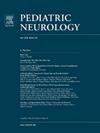青少年和年轻人嵌合抗原受体t细胞治疗后的持续性认知功能障碍
IF 3.2
3区 医学
Q2 CLINICAL NEUROLOGY
引用次数: 0
摘要
背景嵌合抗原受体 T 细胞(CAR-T)治疗血液恶性肿瘤会引起一种神经系统并发症,即免疫效应细胞相关神经毒性综合征(ICANS)。ICANS背后的确切神经认知病理学仍未得到完整描述。本研究旨在阐明持续性认知功能障碍是CAR-T疗法的潜在神经毒性。方法这是一项针对B细胞急性淋巴细胞白血病CAR-T疗法引起的ICANS的单中心连续研究。我们测定了所有 ICANS 患者在 ICANS 症状出现时的认知功能,之后在神经内科对他们进行了随访。没有一名患者出现癫痫发作。在这三名患者中,一名青春期前患者表现为意识水平下降、震颤和纹状体征,但无认知功能障碍。另外两名青少年患者则出现认知功能下降、短期和长期记忆丧失以及情绪紊乱。虽然免疫效应细胞相关脑病的评分仍然很低,但这两名患者的认知功能障碍都很严重,并已致残。所有患者的神经系统状况在一个月内完全恢复到CAR-T治疗前的状态。结论我们的病例结果表明,持续性认知功能障碍可能是青少年B细胞急性淋巴细胞白血病CAR-T疗法导致的神经毒性的一种潜在结果,但未得到充分认识。详细的神经心理学评估可能对CAR-T疗法有益。本文章由计算机程序翻译,如有差异,请以英文原文为准。
Persistent Cognitive Dysfunction After Chimeric Antigen Receptor T-Cell Therapy in Adolescents and Young Adults
Background
Chimeric antigen receptor T-cell (CAR-T) therapy for hematological malignancies causes a neurological complication known as immune effector cell-associated neurotoxicity syndrome (ICANS). The precise neurocognitive pathology underlying ICANS remains incompletely described. The aim of this study is to elucidate that persistent cognitive dysfunction as potential neurotoxicity of CAR-T therapy.
Methods
This was a single-center consecutive study of ICANS caused by CAR-T therapy for B-cell acute lymphoblastic leukemia. We determined the cognitive functions of all patients with ICANS at the onset of ICANS symptoms and followed them up in the neurology department thereafter.
Results
Among the 10 CAR-T cases between 2020 and 2022, three patients had ICANS. None of the patients experienced seizures. Of the three patients, the preadolescent patient showed decreased levels of consciousness, tremors, and striatal signs without cognitive dysfunction. The other two adolescent and young adult patients presented with cognitive decline, short- and long-term memory loss, and emotional disturbances. Although the Immune Effector Cell–Associated Encephalopathy score remained low, the cognitive impairment was profound and disabling in both cases. The neurological status of all patients fully recovered to pre-CAR-T status within one month.
Conclusions
The findings in our cases indicate that persistent cognitive dysfunction may be a potentially under-recognized outcome of neurotoxicity due to CAR-T therapy for B-cell acute lymphoblastic leukemia in adolescents and young adults. Detailed neuropsychologic assessments may be beneficial for CAR-T therapy.
求助全文
通过发布文献求助,成功后即可免费获取论文全文。
去求助
来源期刊

Pediatric neurology
医学-临床神经学
CiteScore
4.80
自引率
2.60%
发文量
176
审稿时长
78 days
期刊介绍:
Pediatric Neurology publishes timely peer-reviewed clinical and research articles covering all aspects of the developing nervous system.
Pediatric Neurology features up-to-the-minute publication of the latest advances in the diagnosis, management, and treatment of pediatric neurologic disorders. The journal''s editor, E. Steve Roach, in conjunction with the team of Associate Editors, heads an internationally recognized editorial board, ensuring the most authoritative and extensive coverage of the field. Among the topics covered are: epilepsy, mitochondrial diseases, congenital malformations, chromosomopathies, peripheral neuropathies, perinatal and childhood stroke, cerebral palsy, as well as other diseases affecting the developing nervous system.
 求助内容:
求助内容: 应助结果提醒方式:
应助结果提醒方式:


